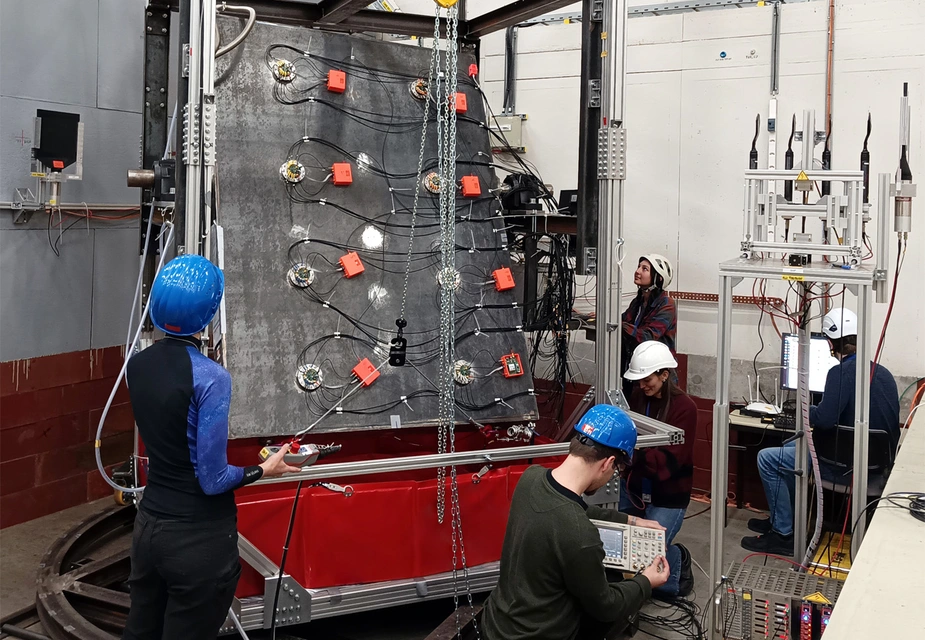SHiP experiment promises new insights into the world of elementary particles
Researchers from six German research institutions are making a significant contribution to the development of detectors for a new experiment at CERN, the research centre for particle physics
The European Centre for Nuclear Research CERN close to Geneva has announced plans to conduct a new experiment called SHiP (Search for Hidden Particles) in search for previously unknown elementary particles. When announcing their plans, Fabiola Gianotti, Director General of CERN, emphasised the importance of this project for understanding the universe.
"The world of elementary particles and the understanding of the cosmos are inextricably linked," emphasises Prof Heiko Lacker from the Humboldt-Universität zu Berlin (HU), who is a founding member of the SHiP experiment and also the representative of the six research groups in Germany that are part of the SHiP collaboration. With the SHiP experiment, the researchers want to find answers to fundamental questions in both the microcosm and the macrocosm.
"Our understanding of the world in its smallest components is still incomplete," explains Prof Caren Hagner from the University of Hamburg. "Many models for a comprehensive description of the universe predict the existence of new particles that have so far escaped our detection. It's time to find them."
Specialised particle detector
An outstanding feature of the SHiP experiment is that the entire particle beam, which is previously accelerated to nearly the speed of light by a particle accelerator, is directed at a massive target object. This generates a significant number of new particles. This alternative approach enables a higher number of particle reactions, which in turn makes very rare processes accessible.
Universities in Germany such as the HU Berlin, the Universities of Freiburg, Hamburg, Mainz and Siegen as well as the Jülich Research Centre have carried out important preliminary work for the experiment.
A key element is the Surrounding Background Tagger, a giant particle detector used to identify unwanted background events in the SHiP experiment. This detector, which covers the outer surface of SHiP, was proposed and developed by German research groups.
"Our goal with the SHiP experiment is to create the world's most sensitive instrument of its kind," explains Prof Michael Wurm from the University of Mainz. "Thanks to innovative technologies and careful planning, we are confident that SHiP harbours enormous discovery potential."
According to the ambitious schedule, the experiment will be planned in detail by 2027, followed by construction and assembly. The first data from the experiment will then be recorded in 2031.
"The German researchers are proud to be part of this pioneering experiment," stresses Prof Marc Schumann from the University of Freiburg. "The collaboration between various universities and national and international research institutions demonstrates the enormous potential of German science." Thanks to their extensive preliminary work, the German researchers are in an ideal starting position to play a leading role in the realisation of this pioneering project.
Further information:
SHiP (Search for Hidden Particles) experiment at CERN Website
Contact
Prof. Dr. Heiko Lacker
Institute of Physics at Humboldt-Universität zu Berlin
lacker(at)physik.hu-berlin.de
www.physik.hu-berlin.de/eephys
Press release HU Berlin, 15 April 2024
